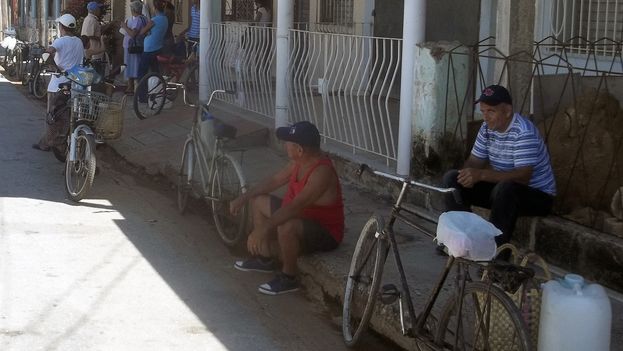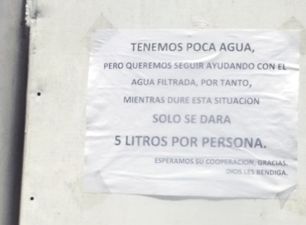
14ymedio,ELVIRA FERNANDEZ, Ciego de Ávila, 21 November 2014 – Seven years after Raul Castro, in a speech, criticized the spread of the marabou weed, this thorny plant continues to gain prominence in our fields. On that occasion, marking the 26th of July, the General said, “Arriving here by land I was able to see if everything is green and beautiful, but the most beautiful, which I could confirm with my own eyes, was how beautiful the marabou weed is all along the entire highway.” Today he could repeat these identical words.
The invasion of what is scientifically known as Dichrostachys cinerea has set off all the alarms. In the middle of the country, its dominion extends across the planes that once served to cultivate cane, the planting of vegetables, or the pasturing of cattle. Nothing is safe from its dense thorny bushes that defy the most intrepid peasants.
Two months ago a troop of men was gathered in Ciego de Avila, armed with rustic tools to fight the marabou weed. The new “Battle of the Revolution” takes place in very fertile lands, but ones which have suffered long neglect from their only owner: the State. Thus they now are drowned under the thorns that have led to enormous weedy thickets.
Something more than 400 men, with axes and machetes in hand, have the arduous mission as their charge. The objective is, that at the end of 2014, all the lands in the upcoming sowing plan will be ready for planting cane. An undoubtedly difficult task, because of the 50,000 acres needed, 32,000 are greatly affected.
Leaders of the territory have promised that the campaign will be recorded in history as “The Epic Against Marabou.” They are unaware, perhaps, of all previous attempts to eradicate a plant that was introduced into our country in the mid-nineteenth century, a plant with the great capacity to reproduce in our country’s climate and natural conditions.
The only advantage of the undesirable marabou is its wood – very hard – which is extremely suitable for firewood, as it burns well and creates little smoke and ashes. However, its collection for these purposes requires strict protection for the farmworker who may be subject to frequent wounds and punctures.
The cost of any collection or eradication of marabou tends to be very high. However, in the new battle against the plague, begun in the center of the country, the savings to the State are guaranteed with the sacrifice of the men who must sweat and bleed, with no right to expect mechanical reinforcements. The directors of the Sugar Company Group have clarified that “because of objective economic conditions we can’t use bulldozers in this confrontation.”
Those who remember, recall that there was no lack of heavy equipment to address other initiatives. Among them two campaigns that have indeed been recorded in history for their disastrous consequences, while opening the way to any plague that invaded the Cuban countryside. The first of these was in the 1970s when the forests were bulldozed and dynamited to sow sugarcane in abundance, with the intention of satisfying the demand from Communist Europe. More recently, many of the sugar mills were dismantled and exported piece by piece to the Bolivarian Republic of Venezuela and the cane fields were left to the mercy of the plagues.
The great results of such “socialist epics” — in addition to villages and towns left lifeless, dead — is the health enjoyed by the marabou weed. In their branches is concentrated our economic collapse, in the abundance of their thorns is the result of the excessive nationalization of our lands.


